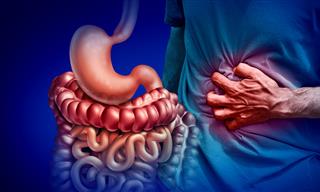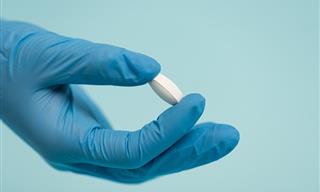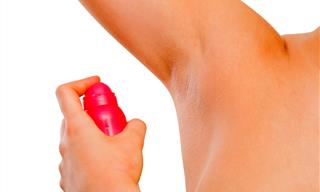1. Taking Vitamins In Gummy Form Promotes Tooth Decay
If something tastes like candy, it’s probably bad for your teeth, even if it’s marketed to be good for you. Yes, we’re talking about the multitude of vitamins and supplements sold for both kids and adults in gummy form.
Though these vitamins are fun, colorful, and beneficial to your nutritional needs, many dentists point out that they’re one of the worst things you could do to your oral health, as parts of the sweet gummy can get stuck between your teeth and provide excellent nutrition to different bacteria, including those that cause cavities and gum disease.
Luckily, you can easily fix this problem by simply brushing your teeth after chewing on the gummy vitamin. Another alternative is, of course, to switch to traditional vitamins packaged in capsule or pill form.
2. Biting Nails Affects Your Enamel, Teeth & Jaw
It is definitely true that biting your nails can cause split nails, but did you know that it can affect your teeth as well?
In mild cases, biting your nails will make the enamel, the outermost protective coating of your teeth, crack and splinter, which provides an entryway for bacteria and can promote cavities. Furthermore, the teeth of patients that constantly bite their nails can sometimes shift over time, which creates an unsightly gap between the teeth.
In severe cases, nail-biting was even associated with jaw pain and headaches caused by jaw tension, so biting your nails is definitely more serious than it may seem at first glance.
3. Snacking too Often Increases the Risk of Cavities
Eating small meals often is beneficial for weight loss and general digestive health, but dentists caution that doing it too often may make you more likely to develop cavities.
This is because eating increases the pH level in your mouth and creates a more acidic environment in the mouth, which remains for another 20-30 minutes after you eat until your saliva neutralizes it. An acidic environment is bad for your teeth, as it was linked to tooth decay.
4. Drinking Sparkling Water can Make your Teeth Sensitive
All carbonated beverages, be it soda, sparkling water or sparkling wine can affect your tooth health. Though unsweetened drinks may be less damaging than soda, they are still worse for your teeth than regular water because it creates an acidic environment that leads to demineralization, a process during which your tooth enamel breaks down.
An absence or lack of teeth enamel, in turn, can lead to discoloration, staining, and cavities.
5. Smoking Can Stain Your Teeth & Promote Cavities
We’re all aware of the adverse effects of smoking on respiratory and heart health, but smoking can also be a threat to your oral health, affecting your teeth, mouth, and gums. Dentists point out that both the soft tissues and teeth can be affected by smoking, with smokers being more likely to have yellow, stained teeth, gum problems and recurrent infections.
6. Brushing Your Teeth Immediately After a Meal May Fracture Your Enamel
As we discussed above, your teeth are more vulnerable to damage right after you eat because of the acidic environment in the oral cavity. If you brush your teeth right after eating, you’re more likely to cause micro fractures in the enamel, especially if you already brush your teeth too harshly.
Instead, wait for at least 30 minutes after a meal before brushing your teeth.
7. Drinking Wine & Coffee Can Stain Your Teeth
Anything capable of staining your clothes can also stain your teeth: coffee, wine, soda, tea, balsamic vinegar, fruit juices, and even tomato sauce can all alter the color of your teeth. Dark-colored drinks are the first ones to blame, of course.
For example, red wine contains a lot of tannins that, despite being excellent antioxidants, can stain your teeth. Sadly, the more pigmented beverages are not the only ones to blame, as even white wine or rose, as well as herbal teas, contain fruit acids capable of discoloring the teeth.
A special mention goes to lemon water or other citrus-infused drinks. Though an occasional splash of lemon juice won’t affect your teeth, drinking highly-acidic drinks like lemon water, vinegar detox drinks and even tomato juice can deteriorate your tooth enamel.
Luckily, minimizing the damage is easy: it’s enough to rinse your mouth with water after you had one of these drinks. This will restore the pH and should get rid of the pigmented ingredients.
8. Using a Mouthwash Containing Alcohol can Increase the Likelihood of an Infection
Many mouthwash varieties contain alcohol, which can dry out your mouth and gums, wipe out the healthy bacteria that live in your mouth and, therefore, promotes infection. And though the sensation of dryness can feel satisfying at first, ultimately, it wreaks havoc in the mouth.
This doesn’t mean, however, that all mouthwashes are bad, as a good mouthwash can help saturate your teeth with fluoride (that helps fight cavities), plus it keeps your breath fresher throughout the day.
To choose the right kind of mouthwash, opt for the alcohol-free varieties and those that contain xylitol, an ingredient capable of stimulating the oh-so-necessary saliva production.
9. Whitening Products Can Wear Away Your Enamel
 As it is the case with acidic drinks, harsh, over-the-counter toothpastes, whitening strips or pastes can damage your enamel, which may make your teeth look whiter at first, but will also make them look worse in the long run.
As it is the case with acidic drinks, harsh, over-the-counter toothpastes, whitening strips or pastes can damage your enamel, which may make your teeth look whiter at first, but will also make them look worse in the long run.This is because by wearing off the enamel, it exposes the next layer of the tooth, the dentin, which, even when healthy, has a yellow tint to it. Remineralizing the enamel is a very long and difficult process, and your enamel may never fully restore.
All of this doesn’t mean that all whitening products are bad, but rather that you should be very careful with teeth-whitening products, especially when you decide to use them without professional oversight.
10. Storing Toothbrushes In a Cabinet or Drawer Exposes You to Infection
Do you store your toothbrushes stashed deep in a container, a drawer or a bathroom cabinet to protect them from all the nasty germs flying around in the bathroom? If germ protection is your major concern, you might want to reconsider your decision, as it turns out that storing your toothbrush in a closed container may lead to more bacteria on your toothbrush.
According to the recommendations by the American Dental Association, you should store your toothbrush in an upright container so that it is exposed to the open air. This will let it dry freely and minimize bacterial growth, because a dry and clean toothbrush is equal to a healthy mouth and teeth.
11. Using Your Teeth As a Tool Can Damage Them Without You Knowing It
This last habit is very popular and just as equally dangerous. Just imagine, it’s a hot summer day, you’re thirsty, and decide to buy yourself a bottle of water. No matter how much you try, it just won’t open, so you have no choice but to resort to “helping” yourself out a bit with your teeth, because why not?
Well, needless to say, this is not a recipe for success, at least when your teeth are concerned. Even if you think that nothing had happened to your teeth and you don’t see or feel any fractures, you could have caused a micro fracture that made your teeth so much more susceptible to cavities and breakage in the future.
Fractures like these can even hurt your jawbone or cause receding gums. Save yourself a trip to the dentist and use a more suitable tool, or simply ask for help.
 Go to BabaMail
Go to BabaMail


























































